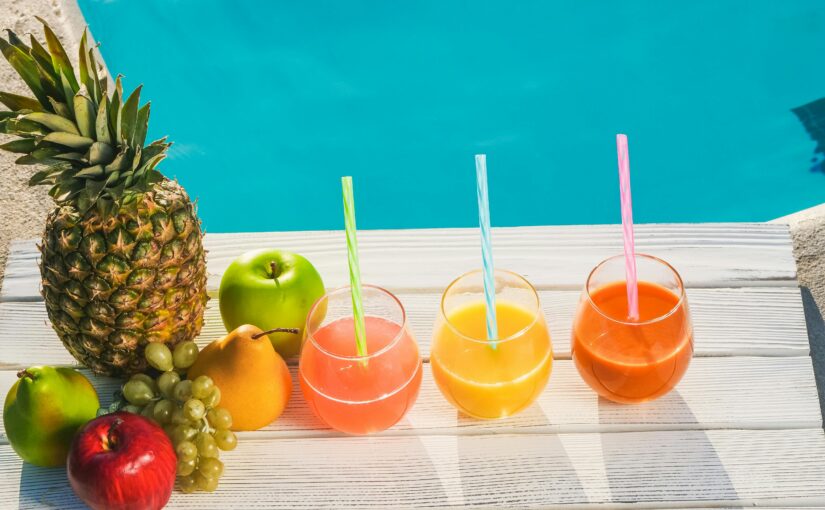There’s something quietly transformative about a single drop of essential oil meeting a glass of cool lemonade or a steaming mug of tea. The scent arrives first, sharp and unmistakable, followed by a flavor that seems to open up in layers. It’s an ancient practice dressed in modern wellness language, this idea of distilling plant essence into potent oils and letting them work their aromatic magic in our beverages.
Essential oils have earned their place in kitchens alongside vanilla extracts and spice jars, though they demand more respect and precision. Where you might pour vanilla with abandon, essential oils ask for restraint. A single drop of peppermint can turn a chocolate smoothie into something reminiscent of those beloved cookie treats. Two drops of lavender can make ordinary lemonade taste like a garden party on a summer afternoon.
The science behind this potency is straightforward. Essential oils are concentrated plant compounds, sometimes requiring hundreds of pounds of botanical material to produce just one small bottle. That concentration means intensity, which is why recipes call for drops rather than teaspoons. It also means therapeutic properties travel along with the flavor, though the health claims surrounding essential oils often outpace the research. What’s undeniable is their ability to add dimension to drinks without sugar, artificial flavoring, or complicated preparation.
Food-grade essential oils have become increasingly available, though not all oils marketed for aromatherapy are safe for internal use. The distinction matters immensely. Oils labeled as dietary supplements or specifically marked as safe for internal consumption undergo different processing and quality controls. Citrus oils like grapefruit and lemon work particularly well in cold beverages, while warming oils such as ginger and cinnamon suit hot drinks. Floral oils like lavender require a delicate hand but reward experimentation.
The recipes that follow showcase this versatility. They range from energizing morning smoothies to calming evening teas, each one built around the principle that essential oils should enhance rather than dominate. These aren’t complicated concoctions requiring specialty equipment or hard-to-find ingredients. They’re everyday drinks made extraordinary through the careful addition of concentrated plant wisdom, proving that sometimes the most powerful transformations come in the smallest packages.
🥤 Pineapple Ginger Smoothie
⏱️ Time: 2 minutes
👥 Serves: 2
Ingredients
🥥 1 cup coconut milk
🍍 1 cup cubed fresh pineapple
🍌 1 banana
💧 ½ cup coconut water
🧊 ½ cup ice
💪 2 scoops collagen protein powder
🫚 1 knob peeled ginger (or 1 drop ginger essential oil)
🍊 1 drop grapefruit essential oil
Directions
1️⃣ In a high-speed blender, add all ingredients and purée on high until smooth.
2️⃣ Serve immediately.
🍫 Thin Mint Smoothie
⏱️ Time: 2 minutes
👥 Serves: 1-2
Ingredients
🥥 1 cup coconut milk
🌿 1 drop peppermint essential oil
🍫 2 tablespoons cacao powder
🦴 1 scoop chocolate Bone Broth Protein powder
🧊 ½ cup ice
Directions
1️⃣ In a high-speed blender, add all ingredients and purée on high until smooth.
2️⃣ Serve immediately.
💜 Lavender Lemonade
⏱️ Time: 10 minutes
👥 Serves: 6-8
Ingredients
💧 1 cup water
🥥 1 cup granulated coconut sugar (or maple or date)
🍋 1 cup lemon juice
💧 4 cups cold water
💐 3 drops lavender essential oil
🧊 Ice (optional)
Directions
1️⃣ In a small pot over high heat, bring the water to a boil.
2️⃣ Dissolve the sugar in the boiling water and stir well.
3️⃣ Pour the sugar water into a large pitcher.
4️⃣ Add in the lemon juice and cold water.
5️⃣ Then, add in the lavender essential oil and stir before serving.
6️⃣ Add ice to the pitcher, if desired.
🧡 Turmeric Tea
⏱️ Time: 5 minutes
👥 Serves: 2
Ingredients
🥥 1 cup coconut milk
💧 1 cup water
🧈 1 tablespoon ghee
🍁 1 tablespoon maple syrup
✨ ⅛ teaspoon turmeric powder (or more, if desired)
🫚 1 drop ginger essential oil
Directions
1️⃣ In a small saucepan over medium-low heat, combine the coconut milk and water. Warm for 2 minutes.
2️⃣ Add the ghee, syrup and turmeric. Stir and warm for another 2 minutes.
3️⃣ Remove from the heat and add the ginger essential oil.
4️⃣ Stir and pour into glasses.
Safety Note ⚠️
Not all essential oils belong in your glass. While the idea of adding botanical essences to drinks sounds benign, these concentrated plant extracts demand careful attention and informed choices.
Only use essential oils specifically labeled as food-grade or dietary supplements with proper nutritional labeling. The FDA classifies certain essential oils as “generally recognized as safe” (GRAS) for human consumption, including citrus oils like lemon and grapefruit, along with peppermint, ginger, and cinnamon bark. However, this designation applies only when oils are used in extremely small amounts for their intended purpose as flavoring agents.
Never consume essential oils “neat” or undiluted directly. Always dilute them in beverages or food, and measure carefully using drops, not teaspoons. Some oils, including tea tree and eucalyptus, are toxic and should never be ingested under any circumstances.
Pregnant women, nursing mothers, children, and individuals with medical conditions or taking medications should consult a healthcare professional before consuming essential oils. Essential oils can interact with medications and may cause digestive irritation or more serious complications when misused.
If you’re uncertain about a specific oil’s safety for internal use, stick to using whole herbs and spices instead. The flavor may be milder, but the margin for error is considerably wider.
Photo by Kindel Media.
